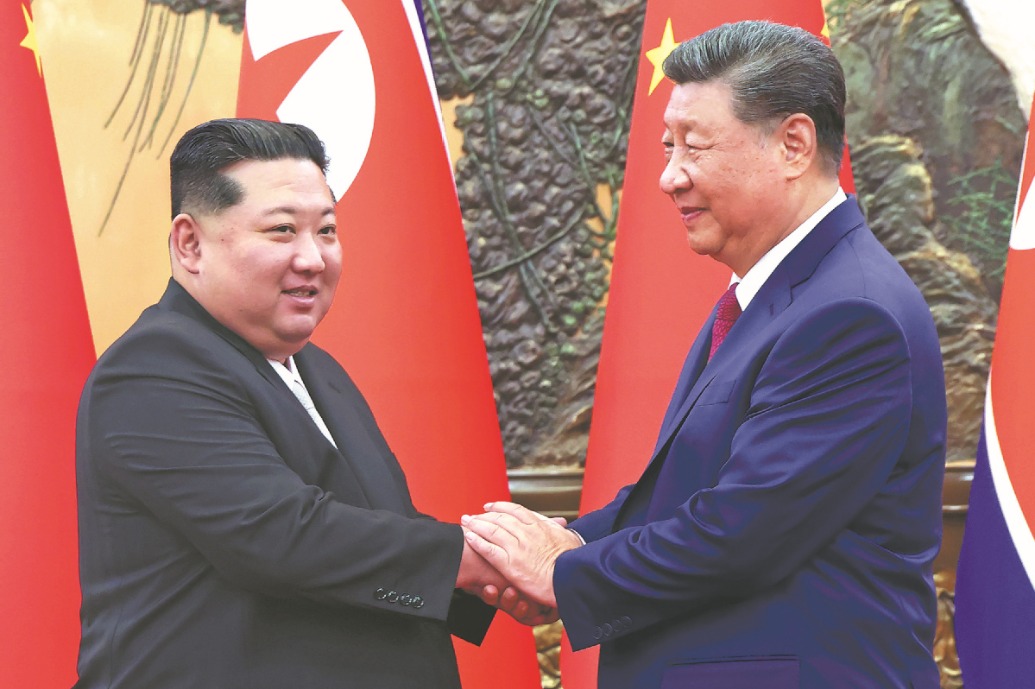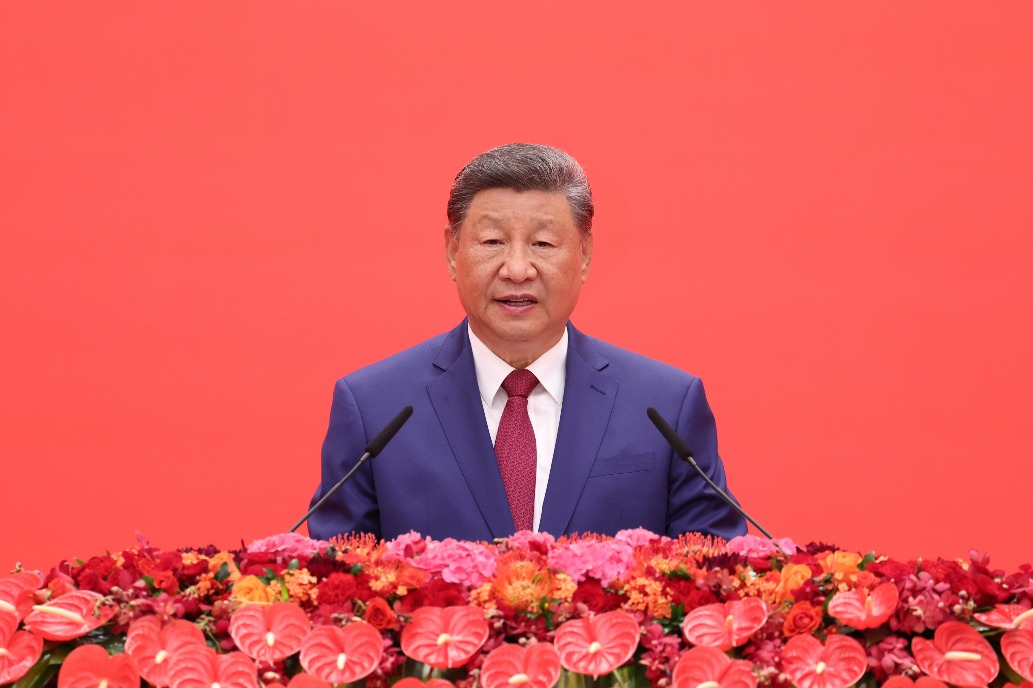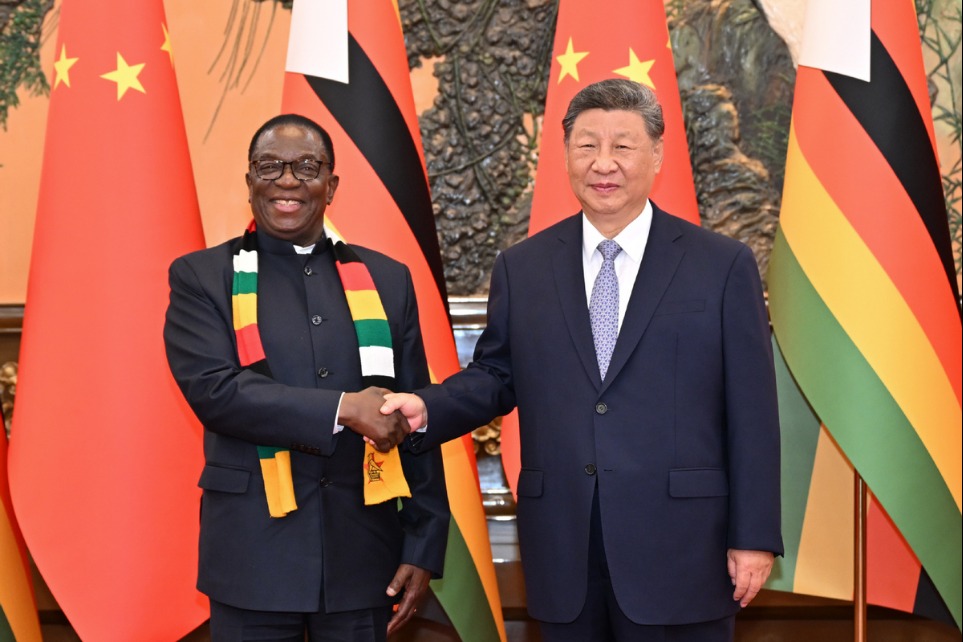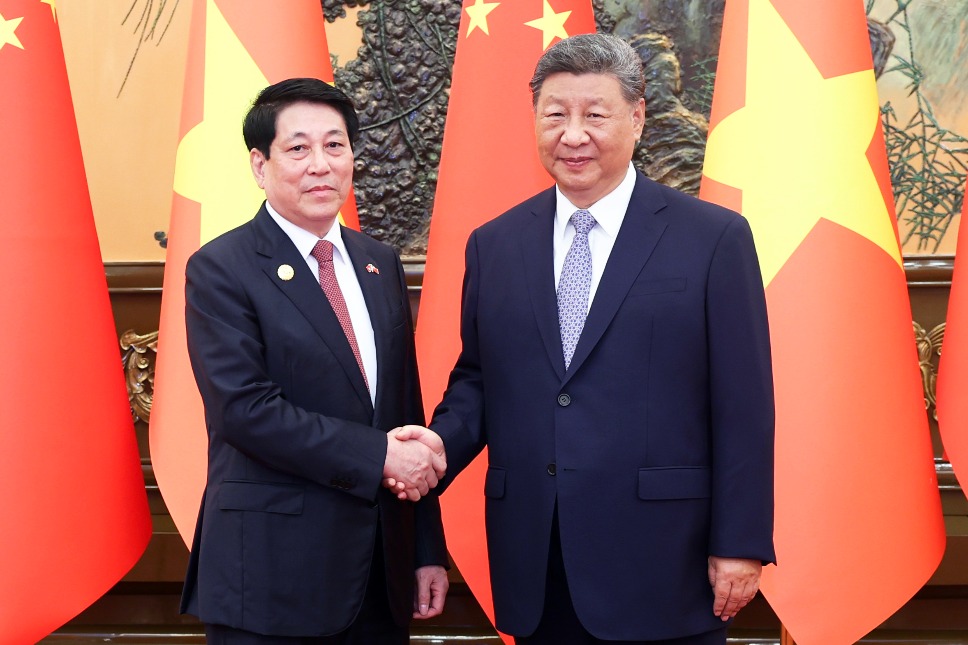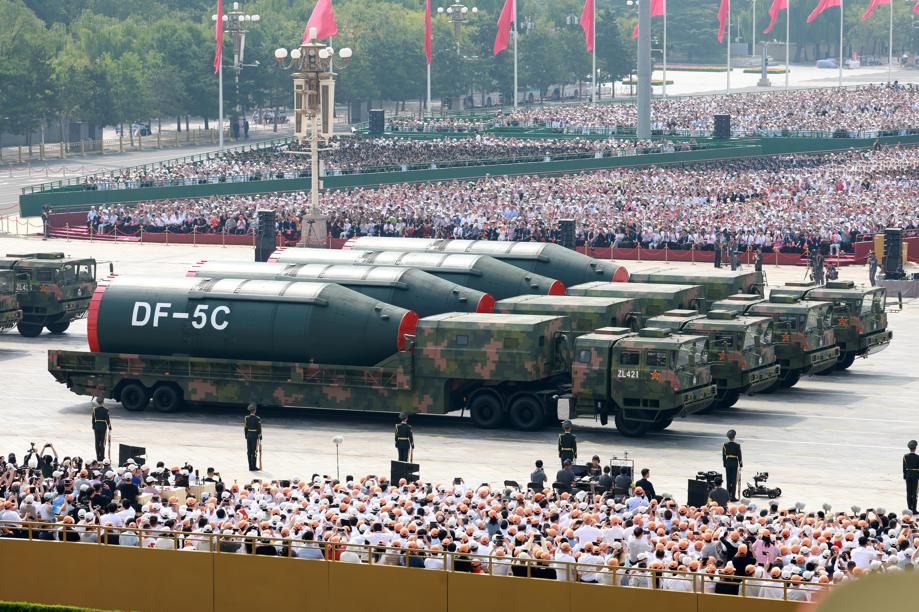Sino-Uzbek partnership fostering green development

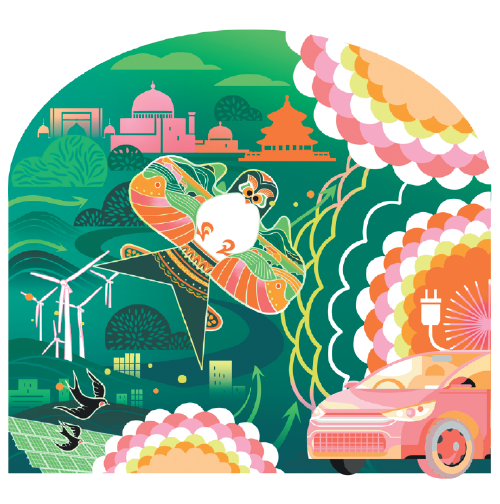
At the conclusion of the SCO Summit in Tianjin on Aug 31 and Sept 1, 2025, where leaders adopted long-term development strategies, and launched new cooperation platforms, the importance of regional collaboration in sustainable development was highlighted. In this context, the strategic partnership between Uzbekistan and China in the field of the green economy stands out as a model for regional green transformation.
In the era of climate challenges and energy transformation, international cooperation to promote sustainable development has become particularly important. One of the most striking examples of such cooperation is the strategic partnership between Uzbekistan and China in the field of the green economy. The two countries, united by a common vision of an environmentally sustainable future, have established an exemplary model of cooperation that can become a catalyst for the green transformation of Central Asia.
The significant momentum in Sino-Uzbek cooperation in green energy, including in technologies that promote environmental efficiency and sustainability, can help the two countries achieve their environmental goals.
China is a global leader in renewable energy and green technologies. In fact, green development has become a priority for the Chinese government, as it has decided to peak the country's carbon emissions before 2030 and realize carbon neutrality before 2060. To be sure, China's achievements in renewable energy are astonishing in their scale — its wind power generation has increased sixfold and solar power more than 180-fold in the last decade.
Uzbekistan, on its part, has become one of the drivers of regional cooperation on climate action, and a facilitator of Central Asia's transformation into a green economy and clean energy development hub. In essence, green development has become a state policy priority for Uzbekistan, with institutional reforms receiving a shot in the arm from the adoption of a new Constitution in 2023, which for the first time calls for protecting the environment and ensuring environmental safety. This in turn necessitated the upgrading of the regulatory framework and strategic planning to achieve sustainable development — and prompted the Uzbek government to declare 2025 as the Year of Environmental Protection and Green Economy.
The national programme for green financing, on the other hand, is a blueprint for transitioning to a low-carbon development model, as it is aimed at increasing the share of environmentally-friendly projects in Uzbekistan's investment structure to 50 percent by 2030.Concurrently, Tashkent is taking measures to improve energy efficiency in agriculture and industry, introduce innovative technologies, and expand the area under organic farming and drip irrigation.
Besides, cooperation between Uzbekistan and China in the field of green development has led to the implementation of joint large-scale sustainable development projects. And deepening cooperation with China will boost Uzbekistan's energy security and environmental sustainability.
The meeting held by the Ministry of Ecology of Uzbekistan in May 2025 marked a new stage of Sino-Uzbek partnership in environmental protection, while a memorandum of understanding signed between the Uzbek Ministry of Ecology and the Xinjiang Institute of Ecology and Geography of the Chinese Academy of Sciences paved the way for the establishment of a Central Asian Research Center for Ecology and Environment in Tashkent. The goal is to turn the new center into a platform for joint scientific research, training of specialists, exchange of modern technologies, and promotion of green, sustainable development throughout Central Asia.
Moreover, Sino-Uzbek cooperation in hybrid and electric vehicle (EV) production is particularly important, because it not only corresponds to the global agenda of sustainable development but also facilitates access to advanced technologies and large-scale investments for Uzbekistan.
The strategic partnership between Uzbekistan and China in green development shows how countries with different economic systems and levels of development can work together to address global environmental challenges.
The success of Sino-Uzbek cooperation is based on several key factors: complementarity of the two countries' economies, and their leaderships' political will, their pursuit of innovation, and a long-term strategy. While China brings advanced technologies, financing and its rich experience in renewable energy development to the partnership, Uzbekistan provides favorable natural conditions, a dynamically developing economy and a strategically important geographic location.
The outcomes of Sino-Uzbek cooperation are already impressive: thousands of megawatts of clean energy generated, millions of tons of carbon emissions reduced, thousands of new jobs created, and billions of dollars invested. However, the main significance of the Sino-Uzbek partnership is its potential to serve as a catalyst for Central Asia's green transformation.
As the two sides implement their ambitious plans, their cooperation will only deepen and expand. And the creation of joint research centers, exchange of students and experts, and the development of green financing and digital technologies will further consolidate their long-term partnership.
Sino-Uzbek cooperation in green development does not only contribute to achieving the climate goals of the two countries; it also develops a new paradigm of international relations based on mutual benefit, technological innovation, and shared responsibility for the future of the planet. This model can and should become a source of inspiration for other countries and regions striving for sustainable development.
The author is a leading researcher at the Institute for Strategic and Interregional Studies under the president of the Republic of Uzbekistan.
The views don't necessarily represent those of China Daily.
If you have a specific expertise, or would like to share your thought about our stories, then send us your writings at opinion@chinadaily.com.cn, and comment@chinadaily.com.cn.
















